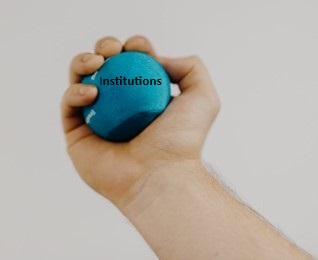Carrot and stick: Ownership reform and CSR performance

Does allowing China’s privately-owned firms to buy equity in large state-owned enterprises have the potential to improve their CSR performance? It does when these firms have restricted access to financial and other resources, the real barriers requiring effective government interventions.
Either bring in good stuff or leave it behind: Executive migration and CSR practices
When executives move to a new company, they bring their CSR recipe with them.
Making sense of CSR reports the semiotic way

We developed a CSR reports quality evaluation model using a linguistic-based theoretical analytical tool, semiotics. This is a valuable tool for both management and CSR communication researchers. It can be used for qualitative analysis or as a quantitative measure of CSR quality.
Elasticity of institutions and implications for business-government relationships

Institutional change is a complex phenomenon. While past studies have examined this phenomenon in various manner, few had noted change scenarios where a change takes place first and then reverts. This article employs the concept of institutional elasticity to explain the reform process in the Indian Petroleum Exploration and Production Sector, specifically examining how these reforms initially went ahead as planned, but later the changes reverted.
How can philanthropic grant financing help social ventures grow?

Philanthropic grants help social enterprises grow but may not improve financial performance, at least in the short-term. Grants help social enterprises to hire more employees and attract debt financing, but have no effect on revenues and equity finance, shows our study of over 3,400 social enterprises over a one-year period.
Pursuing Sustainability in a Business-as-Usual World

Community, resourcefulness, and vision allow people to persist in sustainability initiatives when change seems insurmountable.
An Inside-Out Perspective: Creating a More Socially-Oriented Corporate Purpose
Corporate social responsibility (CSR) not only improves firms’ reputation for managing social and environmental concerns, but also increases their internal capabilities to manage risks by facilitating the adoption of more advanced risk management practices. This ensures that all risks are evaluated at the firm level to avoid the omission of emerging risks and possible ripple effects.
How Do Community Influential Directors Influence Corporate Social Performance?
Hiring community influential directors especially those with ties to boards of non-profits or boards of companies with higher CSP can improve company’s CSP.
How to Design Cross-Sector Partnerships to Strengthen System Capacity?

From “quick fixes” to supporting system capacity: How to better embed cross-sector partnerships in the social issue context
How do leaders with disabilities advance in their careers?

This research unpacks facilitators of career advancement and leadership among persons with disabilities. These facilitators include career self-management strategies, supportive social networks, and organizational and societal factors that are all required for career success.
